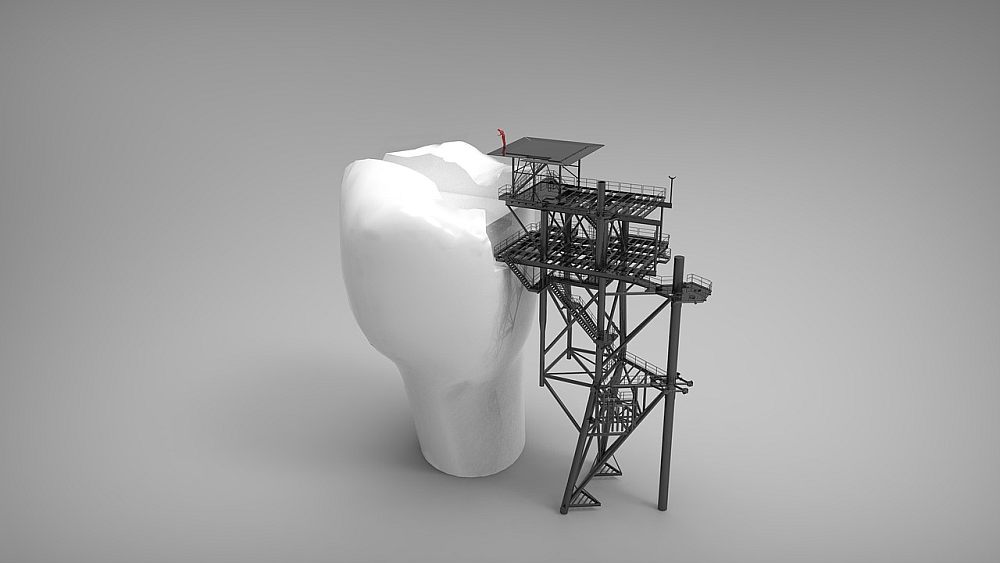 The vast majority of dental implants which are used today are made out of titanium. The threaded titanium post is inserted into the jawbone, an abutment is fixed and a false tooth (crown) is attached to the abutment.
The vast majority of dental implants which are used today are made out of titanium. The threaded titanium post is inserted into the jawbone, an abutment is fixed and a false tooth (crown) is attached to the abutment.
In cases where the patient has concerns about having a titanium post inserted into their jaw or where the immune system rejects the implant there is a non-metallic type of implant made out of a material know as zirconium which can be used as an alternative option.
Zirconium is a ceramic material which is white in colour and shares an essential property with titanium making it suitable as a dental implant material. Once inserted into the bone a healing process takes place known as osseointegration takes place which promotes new bone growth and results in an extremely strong bond between the bone and implanted material. In fact, some studies have shown that zirconium has even higher integration success rates then titanium. It is also an extremely strong material and has a high resistance to corrosion, making it suitable for use as a material for implants.
Concerns over Titanium
Some forms of titanium are well documented as having a negative effect on health. As an example, titanium tetrachloride is known to irritate the skin and severe damage to the lungs can be caused by inhalation. Nevertheless, in general the use of medical titanium implants is generally considered to be safe by the medical and scientific communities but despite this there are some who raise doubts.
There is minute concentration of titanium naturally found in foods which enters the bloodstream after it is eaten, so we all have a small level of titanium in our bodies. But, studies have shown that when titanium is used to facilitate the healing of fractured bones or as dental implants the metal slowly degrades increasing the concentration of titanium in the blood. Very little is known about the long-term effects although titanium is can be regarded as being potentially harmful when extremely high levels are found in the bloodstream. Such high levels are not found in patients who have had medical titanium implants of any kind and the effects of a relatively small increase in concentration levels are thought to be harmless. Having said this, a ‘safe’ level of titanium in the bloodstream has not been established by the medical community.
Immune System Rejection of titanium
A very small percentage of titanium dental implants are rejected by the patient’s immune system. Whilst in the vast majority of cases this does not happen, when it does Zirconium implants can often be successfully used instead. Interestingly, scientists consider that when titanium is rejected by the immune system, it is considered to be an effective response to a foreign body and in the majority of cases where no rejection takes place; it indicates a failure of the immune system to identify and react to the foreign body.
Advantages of zirconium
Implants made out of Zirconium are slightly more likely to result in successful integration with the bone. They are particularly useful in patients whose immune system has previously rejected titanium in the past. Some claim zirconium dental implants have an aesthetic advantage over titanium implants but as the implant is completely covered by the gums and crown there is little actual aesthetic advantage. The material has a very high resistance to corrosion and may be favourable for patients who have doubts about the possible health risks of titanium.
Possible Risks & Disadvantages of Zirconium
One of the primary dangers linked to Zirconium is that it is a radio active material and can contain a variety of radioactive isotopes. Although implants made from Zirconium emit only a very small level of radiation they are considered to be safe as companies which manufacture this type of implant are required by law to produce a formal declaration stating the level of radioactivity of all of its zirconium products.
Zirconium implants are considerably more expensive than titanium implants and are also a relatively new product. Conventional titanium Implants certainly have a longer track record than their non-metallic counterparts.
Conclusion
Zirconium implants are a viable alternative to conventional dental implants and are most useful in those rare instances where it is not possible to use titanium. They can also be used in implant dentistry when selected by the patient due to personally held concerns regarding bio-accumulation of titanium in the body. In all instances where a preference for zirconium is stated, the dentist should consult with the patient to enable an informed decision to be made.
Mark is a freelance author who writes articles on all aspects of oral health, restorative dentistry and cosmetic dentistry for Dentalcare Plus visit their website



Great post! I’ve been thinking about getting dental implants, so I appreciate all the information I can get. I’m curious—are Zirconium implants as readily available as titanium implants? And if they are, does a dentist need to be Zirconium-licensed or anything? Thanks!